02 - A Strategic Interaction Game of Political Rights: A Case Study of Gilgit-Baltist...
http://dx.doi.org/10.31703/gpr.2018(III-II).0210.31703/gpr.2018(III-II).02 Published : Dec 2018
-
Using a simple sequential game, this article aims at exploring the outcome of the political interactions of various strategic players related to the political status of GilgitBaltistan. A political system that comes into existence after the strategic interactions of different players is defined to be an outcome for the purpose of our analysis. To discuss the constitutional limbo in Gilgit-Baltista... Details
-
Political status, Strategic players, Status-quo, Constitutional Limbo, Gilgit-Baltistan
-
(1) Saranjam Baig
Assistant professor,Department of political science and political economy,Sultan Qaboos University, Muscat, Oman.
(2) Manzoor Ahmad
Assistant Professor,Department of Political Science, Abdul Wali Khan University, Mardan, KP, Pakistan.
(3) Jan Alam
MPhil Scholar,Department of Political Science,Abdul Wali Khan University, Mardan, KP, Pakistan.
03 - Analytical Overview of Beijings Belt and Road Corridors...
http://dx.doi.org/10.31703/gpr.2018(III-II).0310.31703/gpr.2018(III-II).03 Published : Dec 2018
-
This paper explores the rationale and factors that led to the adoption of Beijings Belt and Road Initiative. The study analysis the land corridors in detail and investigate its progress and challenges posed to each corridor. This paper aims to find out the real motives behind the overall concept of Belt and Road corridors and the benefits that it brings to China and participant states. Additionall... Details
-
China, Belt & Road Initiative, Analysis, Corridor, South Asia, Middle East
-
(1) Ijaz Khalid
Demonstrator, Department of Political Science, Abdul Wali Khan University, Mardan, KP, Pakistan.
(2) Syed Umair Jalal
MPhil Scholar, Department of Political Sciences,University of Peshawar, Peshawar, KP, Pakistan.
(3) Muhammad Bilal
Assistant Registrar, Women University Swabi, Swabi, KP, Pakistan.
04 - Nuclear Suppliers Group (NSG) Membership: The Case of India and Pakistan...
http://dx.doi.org/10.31703/gpr.2018(III-II).0410.31703/gpr.2018(III-II).04 Published : Dec 2018
-
Nuclear Suppliers Group (NSG) was established after Indias 1974 nuclear tests. Only signatories of the Nuclear Proliferation Treaty (NPT) can fulfill the criteria for NSG membership. India is not a signatory of NPT. India, however, is getting support from the US for entry into the NSG. Since Pakistan is a nuclear power and a non-NPT signatory so, it also applied for membership of the NSG along wit... Details
-
NSG, NPT, India, Pakistan, US, China
-
(1) Muhammad Murad
MS Scholar,Department of IR.Sindh University, Jamshoro, Sindh.
(2) Muhammad Ramzan Kolachi
Assistant Professor, Faculty of Social Sciences, SZABIST, Karachi, Sindh, Pakistan.
(3) Uroosa Ishfaq
MPhil Scholar,Department of Political Science,Abdul Wali Khan University, Mardan, KP, Pakistan.
05 - Chinese Dream and Prospect of Harmonious World Policy: Drawing Lessons for Pakis...
http://dx.doi.org/10.31703/gpr.2018(III-II).0510.31703/gpr.2018(III-II).05 Published : Dec 2018
-
In the last four decades, China has transited from a closed country to major power status by adopting pragmatic policies. This article analyzes the transformation in Chinas foreign policy with its futuristic plan of building a harmonious world through peaceful co-existence and win-win cooperation. By adhering to principles of Panchsheel, foundations for prosperous China were laid. The notion of pe... Details
-
Peace, Harmony, Chinese Dream
-
(1) Waseem Ishaque
Assistant Professor, Department of IR, National Defence University, Islamabad, Pakistan.
(2) Aman Ullah
Ministry of Interior, Government of Pakistan, Islamabad, Pakistan.
(3) Ijaz Khalid
Demonstrator, Department of Political Science,Abdul Wali Khan University, Mardan, KP, Pakistan.
06 - Guam, the Center of Asia Pacific: A Source of Geo-Strategic Rivalry between Chin...
http://dx.doi.org/10.31703/gpr.2018(III-II).0610.31703/gpr.2018(III-II).06 Published : Dec 2018
-
Guam is the U.S. unincorporated territory and military (base), which lies in the western part of the Pacific Islands. Guam serves as the lynchpin for the U.S. influence in the Pacific, is became the flashpoint between two nuclear powers of the region i.e. United States of America and China, due to its strategic geopolitical position. Nevertheless, Guam remained a conducive place for the U.S. naval... Details
-
U.S.; China; Guam; Pacific Island; Unincorporated territory; Battlefield
-
(1) Barkat Ali
MPhil Scholar,Department of Political Science & IR,Qurtuba University of Science & IT, Peshawar, KP, Pakistan.
(2) Nazim Rahim
Assistant Professor,Department of Political Science & IR,Qurtuba University of Science & IT, Peshawar, KP, Pakistan.
(3) Muhammad Usman Ullah
Research Fellow, Humanity Research Council, Islamabad, Pakistan.
07 - Opportunities and Risk Factors in Public-Private Partnership on Energy: A Critic...
http://dx.doi.org/10.31703/gpr.2018(III-II).0710.31703/gpr.2018(III-II).07 Published : Dec 2018
-
This study delineates a 1000 Megawatt (MW) very large scale Photovoltaic (PV) system designed in three phases, from which 100 MW has functional and the remaining two phases of 300MW, 600 MW has yet to be functional at Quaid-eAzam solar park (QSP) in Cholistan desert near Bahawalpur City of Pakistan. This study describes the opportunities and risks in the construction of solar PV plant (QSP), which... Details
-
Solar energy, Public-Private Partnerships, China Pakistan economic corridor, Quaid-e-Azam Solar Photovoltaic Park, Critical factors.
-
(1) Bilal Anwar
Department of Management Sciences, Bahria University Lahore Campus, Lahore, Punjab, Pakistan.
(2) Muhammad Imran Ashraf
Department of International Relations, National Defence University, Islamabad, Pakistan.
(3) Aftab Alam
PhD. Scholar, Department of Political Science,Punjab University, Lahore, Punjab, Pakistan.
08 - Darfur Conflict beyond Ethnic Division: A Politico-Economic Perspective ...
http://dx.doi.org/10.31703/gpr.2018(III-II).0810.31703/gpr.2018(III-II).08 Published : Dec 2018
-
The Darfur crisis, dwell in the western territory of Sudan, a civil war that delineates upon the grave state of affairs. Since 2003, the Darfur region has been reported dislocated or migrated, providing the base argument to the world and the UN, referring genocide. Although establishing the insurgency distinctiveness, the crisis in the Darfur region has been generally referred to as tribal ethnic ... Details
-
Africa, Sudan, Darfur, Genocide, Socio-Political, Socio-Economic, Civil War
-
(1) Assad Mehmood Khan
PhD Scholar,Department of Political Science & IR, Qurtuba University of Science & IT, Peshawar, KP, Pakistan.
(2) Nazim Rahim
Assistant Professor,Department of Political Science & IRQurtuba University of Science & IT, Peshawar, KP, Pakistan.
(3) Sajjad Ali khan
Assistant Professor,Department of International Relation, Abdul Wali Khan University, Mardan, KP, Pakistan.
09 - Social Media and Cyber Crimes in Pakistan: Facts, Propaganda, Awareness, and Leg...
http://dx.doi.org/10.31703/gpr.2018(III-II).0910.31703/gpr.2018(III-II).09 Published : Dec 2018
-
Cybercrime is a criminal act committed using computing devices and the Internet. It ranges from downloading pirated movies to destabilizing national economies. Nonfinancial crimes range from phishing to top-notch crimes such as cyber terrorism. Comprehensive detail of such crimes has been revealed through this empirical study. It investigates the level of awareness, crime sophistication, the exten... Details
-
Cybercrimes, Technological crimes, Social Media and cybercrimes, Digital Crimes, New Media Crimes
-
(1) Asad Munir
PhD Scholar, Islamia University of Bahawalpur,Bahawalpur, Punjab, Pakistan.
(2) Ghulam Shabir
Former Chairman,Department of Media Studies, The Islamia University of Bahawalpur, Bahawalpur, Punjab, Pakistan.
10 - Male Superiority in Quran: A Critical Appraisal...
http://dx.doi.org/10.31703/gpr.2018(III-II).1010.31703/gpr.2018(III-II).10 Published : Dec 2018
-
The role of a woman as an individual in many Muslim societies has been undermined. When the Quran uses the word 'Nafs' or person, it describes the relation of the individual with Allah without taking into account any difference of male or female. Quran is the last revelation on Earth has to be interpreted in its best meaning. The superiority of male in the Quran must be read with conditions attach... Details
-
Daraba, Ijtehad. Nafs, Nushuz, Preference, Qanitat, and Qawwamuna
-
(1) Muhammad Aqeel Khan
Assistant Professor, Department of Law, Abdul Wali Khan University Mardan, Mardan, KP, Pakistan
(2) Muhammad Zubair
Associate Professor, Department of Law, Abdul Wali Khan University Mardan, Mardan, KP, Pakistan.
(3) Abida Hassan
PhD Scholar, Department of Law, University of South Asia, Lahore, Punjab, Pakistan.
11 - Implementation of CM Road Map: An Administrative Perspective...
http://dx.doi.org/10.31703/gpr.2018(III-II).1110.31703/gpr.2018(III-II).11 Published : Dec 2018
-
Pakistan is facing a big crisis of almost half of its illiterate population, and all governments have taken numerous initiatives to increase not only its literacy rate but also to uplift the quality of education. CM Road Map is one such initiative. This study was designed to identify the role of headteachers in implementing the CM road map in schools. A sample consisted of 105 headteachers were se... Details
-
CM Road Map, Role of Head Teachers, Quality of Education, Universal primary Education
-
(1) Misbah Malik
Assistant Professor, Institute of Education and Research, University of the Punjab, Lahore, Punjab, Pakistan.
(2) Fasiha Altaf
Ph.D. Scholar, Institute of Education and Research, University of the Punjab, Lahore, Punjab, Pakistan.
(3) Samreen Mehmood
Assistant Professor, Department of Education, AWKUM, Mardan, KP, Pakistan.
12 - Marxist Analysis of Mohammed Hanif's Our Lady of Alice Bhatti...
http://dx.doi.org/10.31703/gpr.2018(III-II).1210.31703/gpr.2018(III-II).12 Published : Dec 2018
-
In the novel "Our Lady of Alice Bhatti", the novelist depicts the worse and pitiable plight of the lower classes living on the edges of marginality. The story is narrated through the perspective of a young Christian nurse and her 'choorah' family. Her oppression may well be interpreted as an instance of a class struggle between the capitalist and the proletariat. The study contends that religious ... Details
-
Marxism, Ideology, Class, Hegemony, Socio-Economic Disparity Introduction
-
(1) Nazakat
Lecturer, Department of English, Hazara University Mansehra, KP, Pakistan.
(2) Muhammad Imran
Assistant Professor, Department of English, Government College Havelian KP, Pakistan.
(3) Adil Khan
Lecturer, Department of Pakistan Studies, Hazara University, Mansehra, KP, Pakistan.
13 - How Socio-Political Indicators of Poor Governance Pave the Way for Coup d' Etate...
http://dx.doi.org/10.31703/gpr.2018(III-II).1310.31703/gpr.2018(III-II).13 Published : Dec 2018
-
This paper is about the relationship between the socio-economic indicators of poor governance and how it helps the military to take over the affairs of the state with ease. The 1990s era witnessed serious lapses in the governance system of Pakistan, and so, the military made frequent entries in politics. What this paper finds is that if the system of governance does not improve during the civilian... Details
-
Socio-Political Indicators, Governance, Pakistan, Nawaz Sharif
-
(1) Ayaz Ali Shah
Lecturer, Department of Political Science, Abdul Wali Khan University Mardan, KP, Pakistan.
(2) Nelofar Ehsan
Lecturer, Department of Political Science, Abdul Wali Khan University Mardan, KP, Pakistan.
(3) Hina Malik
Demonstrator, Department of Political Science, Abdul Wali Khan University Mardan, KP, Pakistan.
14 - Terrorism and Social Engineering: A Distorted Picture of the Pakhtuns...
http://dx.doi.org/10.31703/gpr.2018(III-II).1410.31703/gpr.2018(III-II).14 Published : Dec 2018
-
Much of the ongoing terrorism in Pakistan is happening on and in the context of the Pakhtun region. This has severe possible implications for the present and future of the region and its inhabitants. It is imperative, therefore, to objectively analyze the process so that effective policy options are adopted for its eradication. Relying mainly on secondary data, the current study is a qualitative a... Details
-
Pakhtuns, Terrorism, Social Engineering, Cultural Distortion
-
(1) Abdul Shakoor
Assistant Professor, Department of International Relations, Abdul Wali Khan University Mardan, KP, Pakistan.
15 - Insanity as a Legal Defense with Special Reference to the Law in Pakistan ...
http://dx.doi.org/10.31703/gpr.2018(III-II).1510.31703/gpr.2018(III-II).15 Published : Dec 2018
-
Much Crime is the combination of two elements namely the 'actusreas' and 'mensrea' is considered to have been committed when both these elements exist and are proven against the accused. Of these elements, 'mensrea' is the guilty state of mind with which a crime is committed. Hence, the law, under circumstances the mental capacity of a person is impaired due to some disease, allows legal defences ... Details
-
Criminal Law, Legal Insanity, Responsibility, Criminology
-
(1) Naghma Farid
Nawab Allah Nawaz Khan Law College, Gomal University, Dera Ismail Khan, KP, Pakistan.
(2) Muhammad Siraj Khan
Nawab Allah Nawaz Khan Law College, Gomal University, Dera Ismail Khan, KP, Pakistan.
(3) Noman Gul
Nawab Allah Nawaz Khan Law College, Gomal University, Dera Ismail Khan, KP, Pakistan.

 Volume X, Issue IV (Fall 2025)
Volume X, Issue IV (Fall 2025) 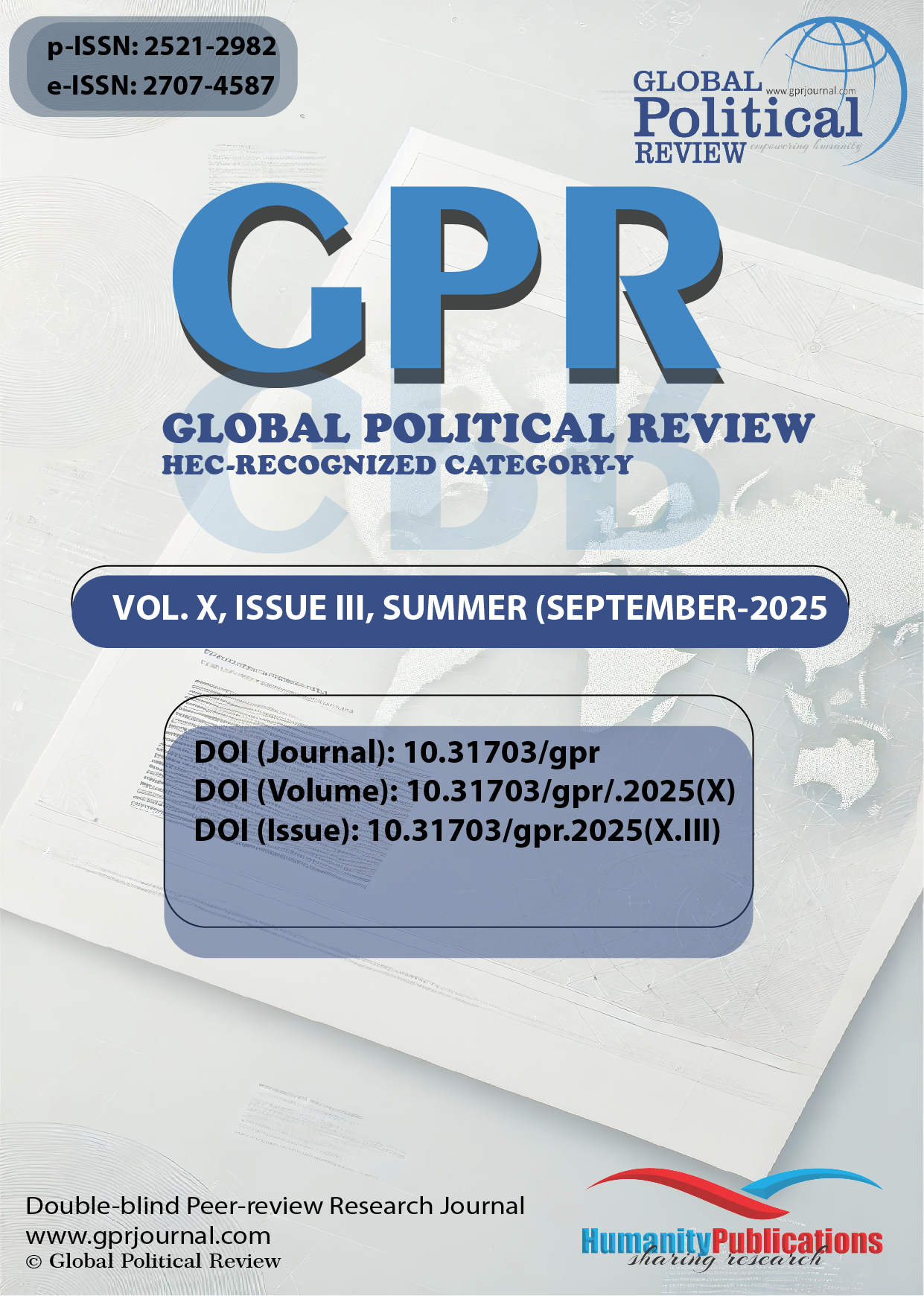 Volume X, Issue III (Summer 2025)
Volume X, Issue III (Summer 2025) 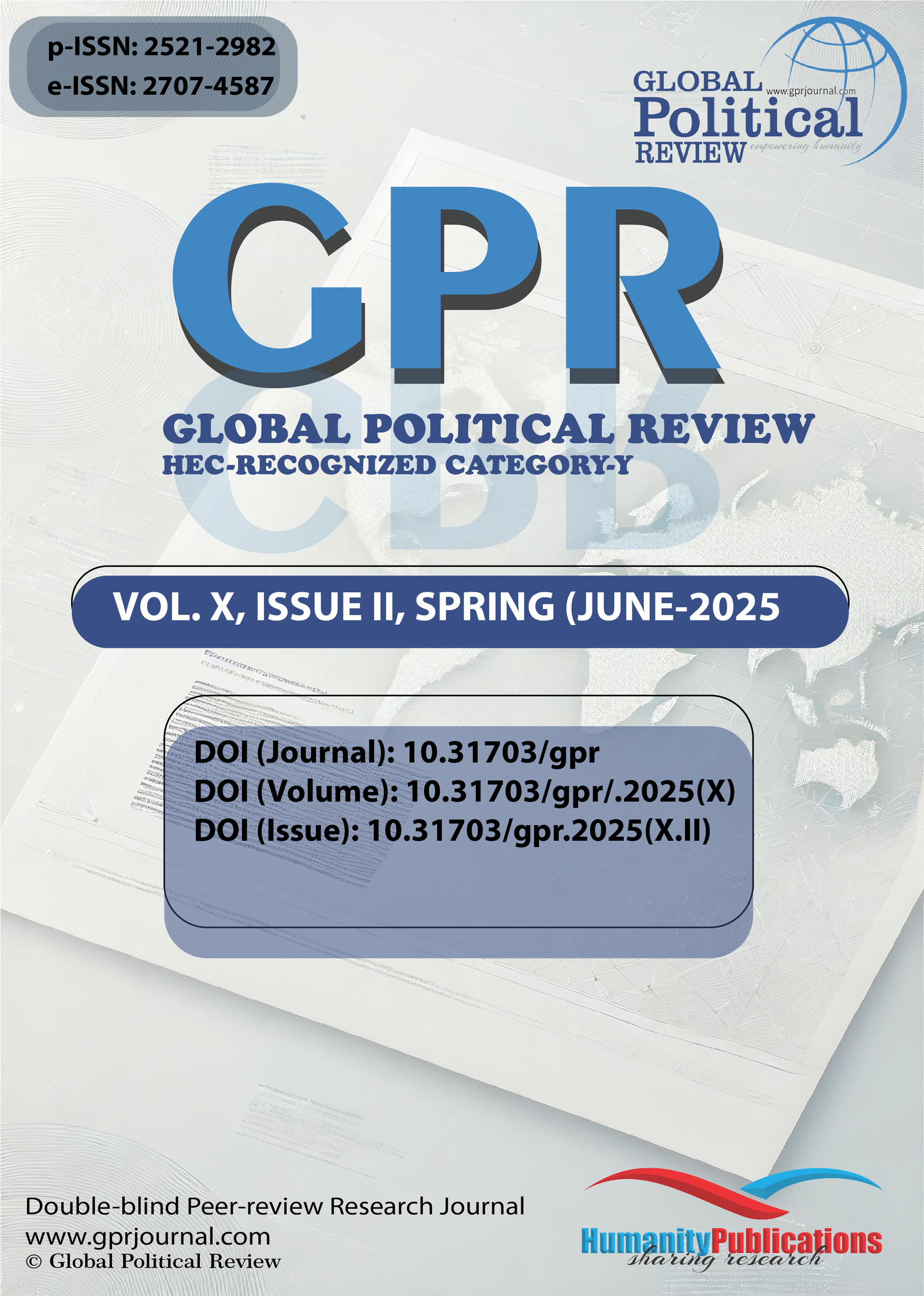 Volume X, Issue II (Spring 2025)
Volume X, Issue II (Spring 2025)  Volume X, Issue I (Winter 2025)
Volume X, Issue I (Winter 2025)  Volume IX, Issue IV (Fall 2024)
Volume IX, Issue IV (Fall 2024)  Volume IX, Issue III (Summer 2024)
Volume IX, Issue III (Summer 2024)  Volume IX, Issue II (Spring 2024)
Volume IX, Issue II (Spring 2024)  Volume IX, Issue I (Winter 2024)
Volume IX, Issue I (Winter 2024) 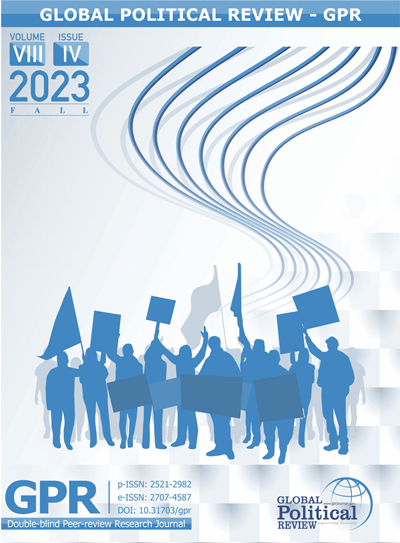 Volume VIII, Issue IV (Fall 2023)
Volume VIII, Issue IV (Fall 2023)  Volume VIII, Issue III (Summer 2023)
Volume VIII, Issue III (Summer 2023)  Volume VIII, Issue II (Spring 2023)
Volume VIII, Issue II (Spring 2023) 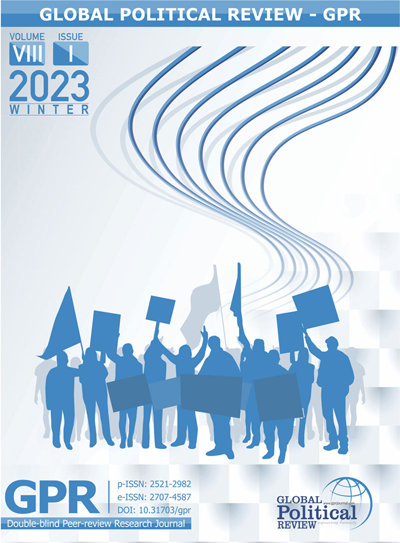 Volume VIII, Issue I (Winter 2023)
Volume VIII, Issue I (Winter 2023) 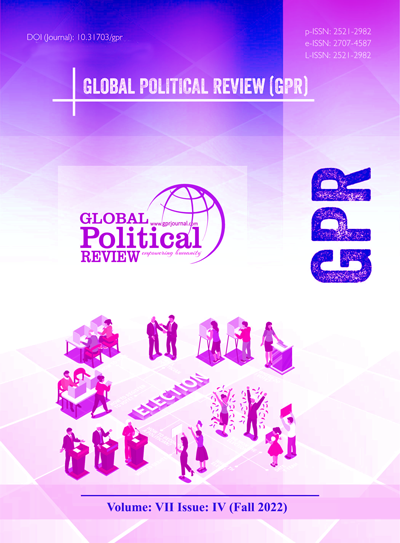 Volume VII, Issue IV (Fall 2022)
Volume VII, Issue IV (Fall 2022)  Volume VII, Issue III (Summer 2022)
Volume VII, Issue III (Summer 2022)  Volume VII, Issue II (Spring 2022)
Volume VII, Issue II (Spring 2022)  Volume VII, Issue I (Winter 2022)
Volume VII, Issue I (Winter 2022) 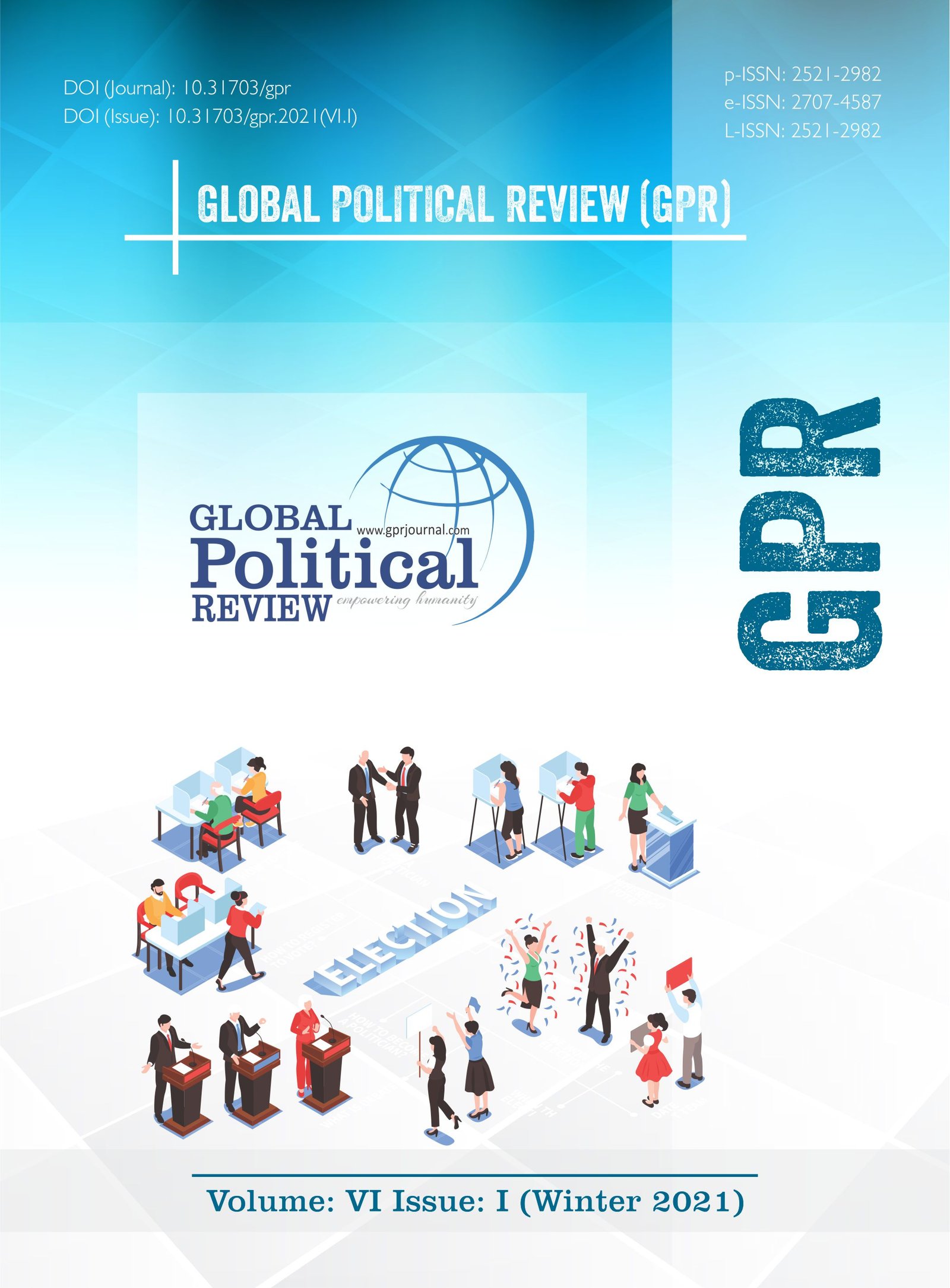 Volume VI, Issue IV (Fall 2021)
Volume VI, Issue IV (Fall 2021) 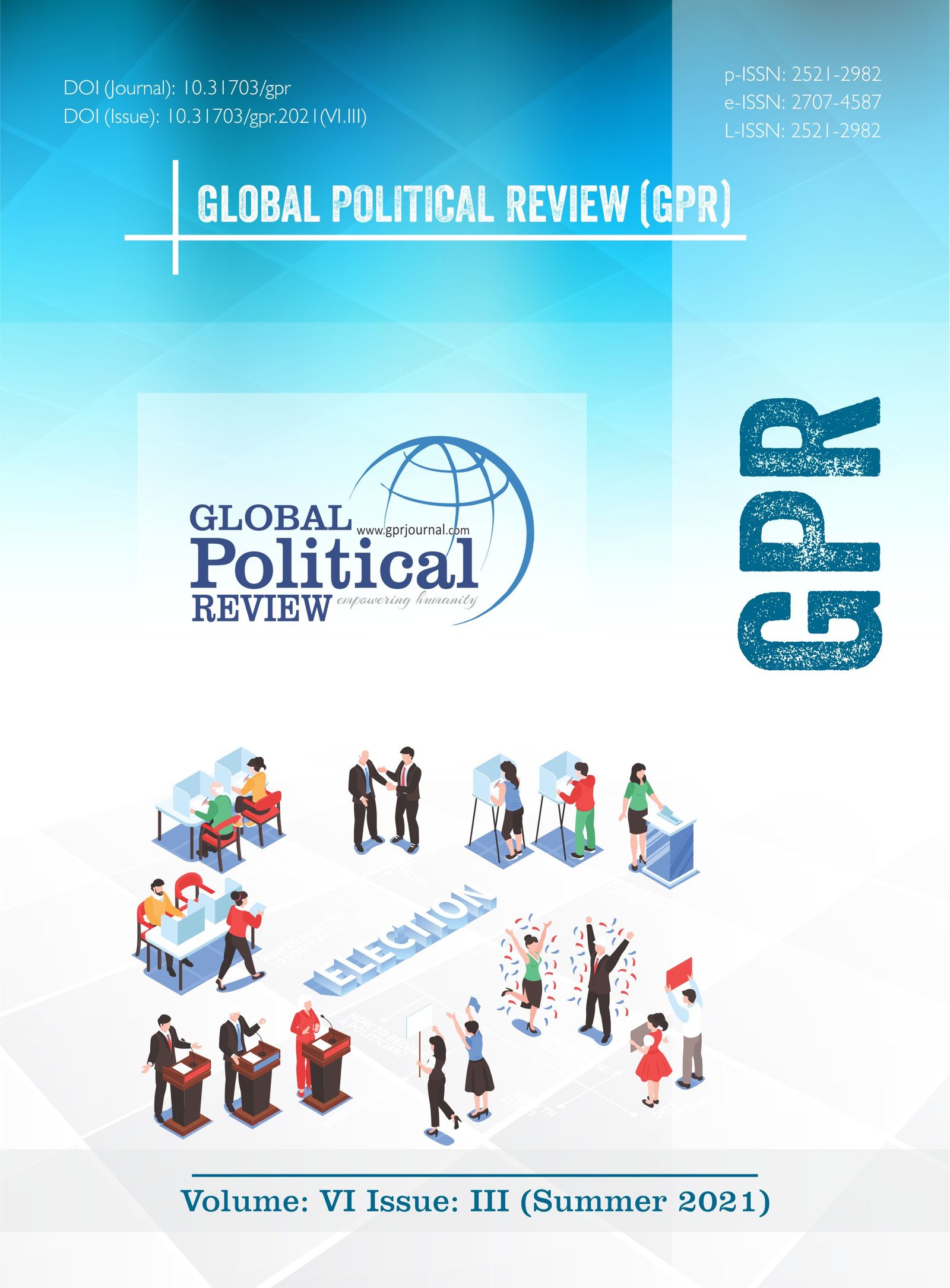 Volume VI, Issue III (Summer 2021)
Volume VI, Issue III (Summer 2021)  Volume VI, Issue II (Spring 2021)
Volume VI, Issue II (Spring 2021) 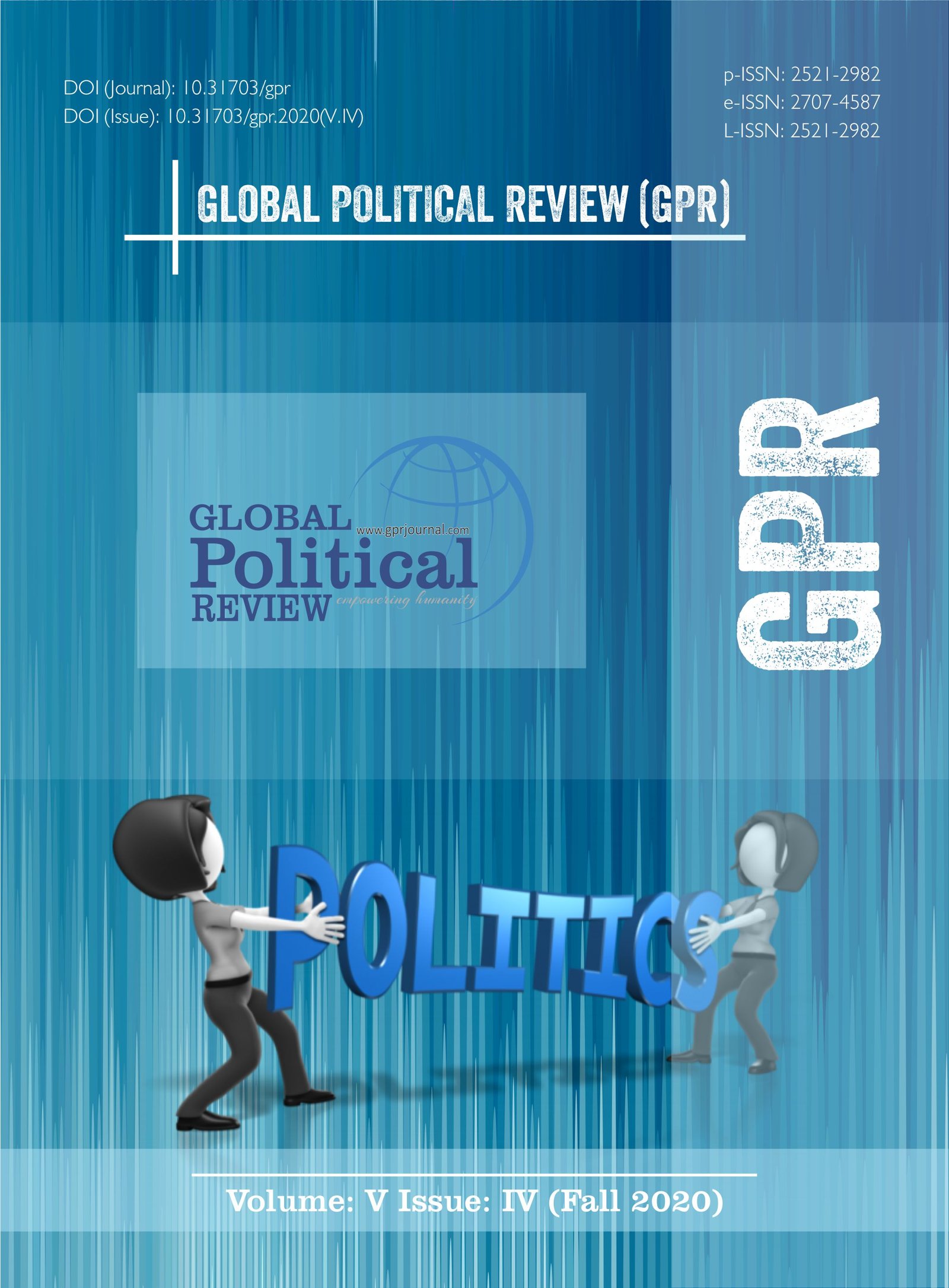 Volume V, Issue IV (Fall 2020)
Volume V, Issue IV (Fall 2020)  Volume V, Issue III (Summer 2020)
Volume V, Issue III (Summer 2020) 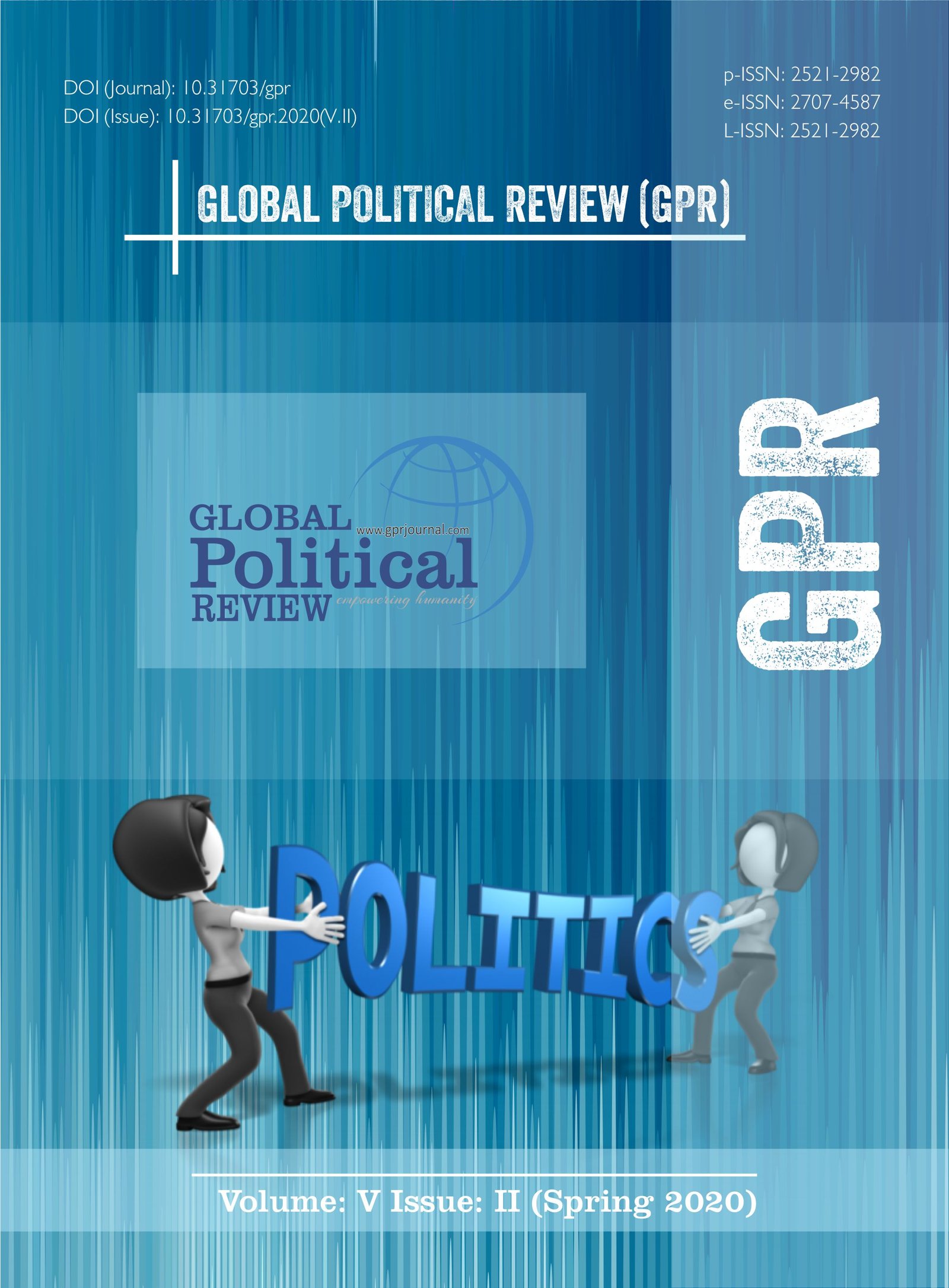 Volume V, Issue II (Spring 2020)
Volume V, Issue II (Spring 2020) 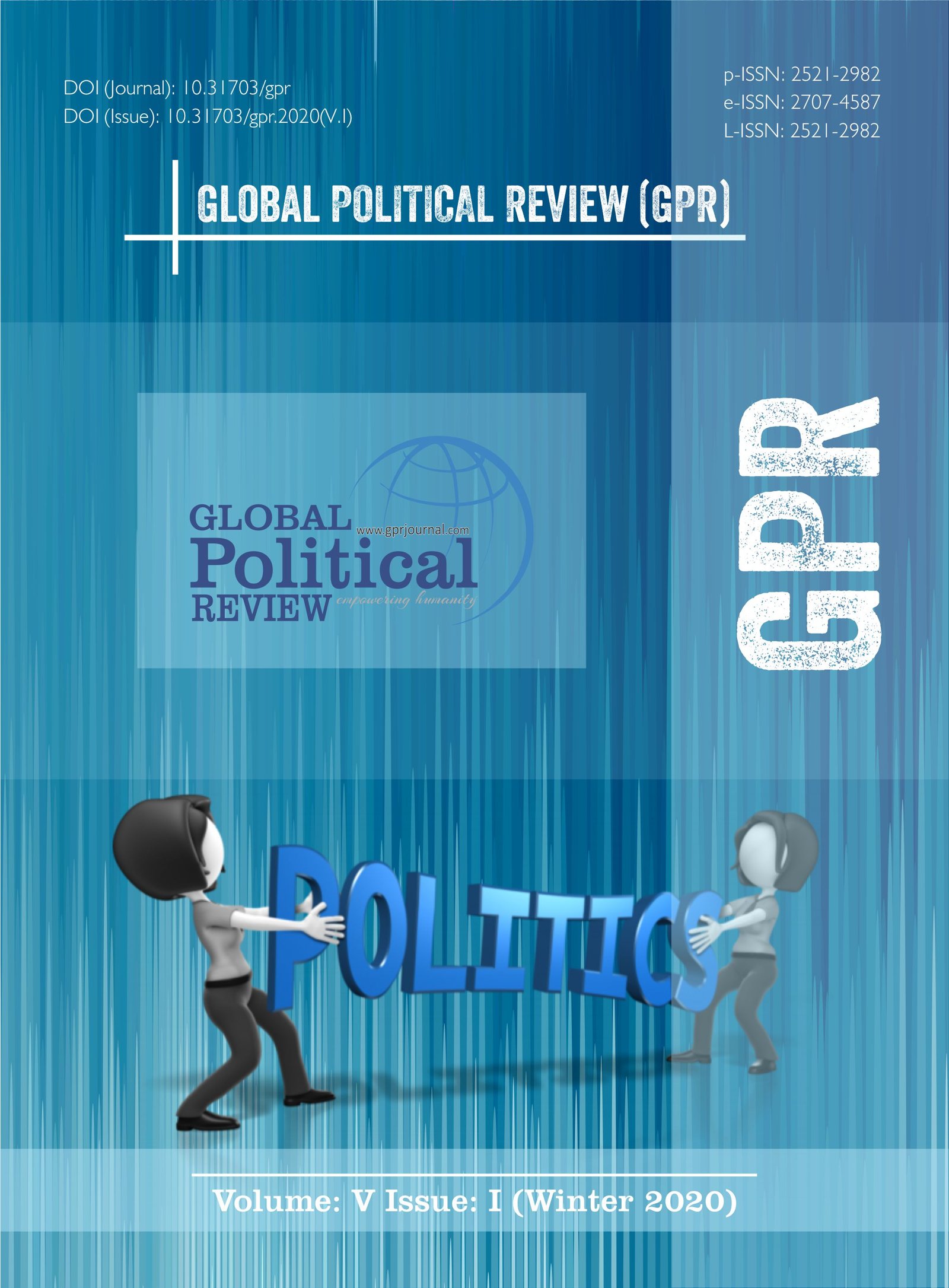 Volume V, Issue I (Winter 2020)
Volume V, Issue I (Winter 2020)  Volume IV, Issue IV (Fall 2019)
Volume IV, Issue IV (Fall 2019)  Volume IV, Issue III (Summer 2019)
Volume IV, Issue III (Summer 2019)  Volume IV, Issue II (Spring 2019)
Volume IV, Issue II (Spring 2019) 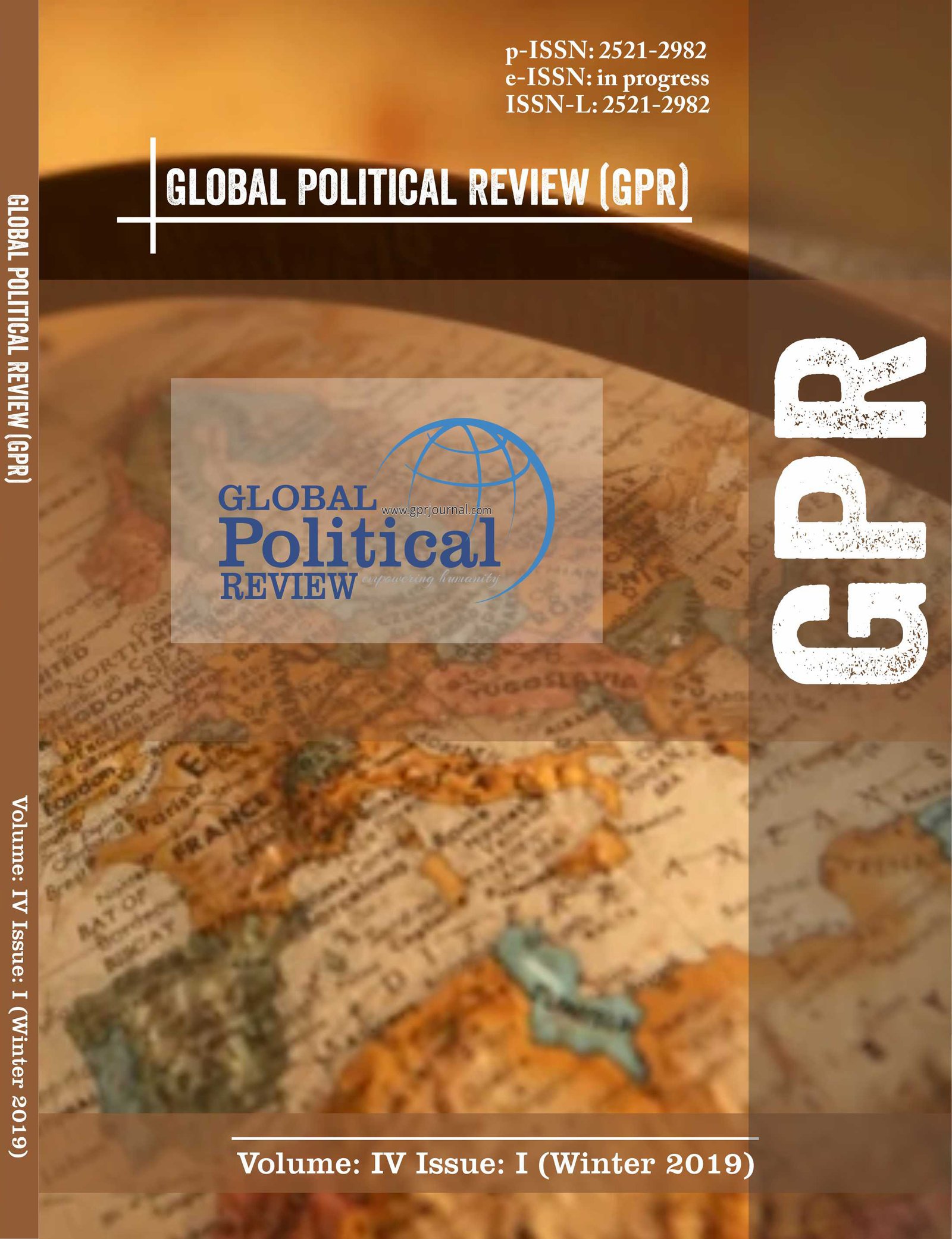 Volume IV, Issue I (Winter 2019)
Volume IV, Issue I (Winter 2019) 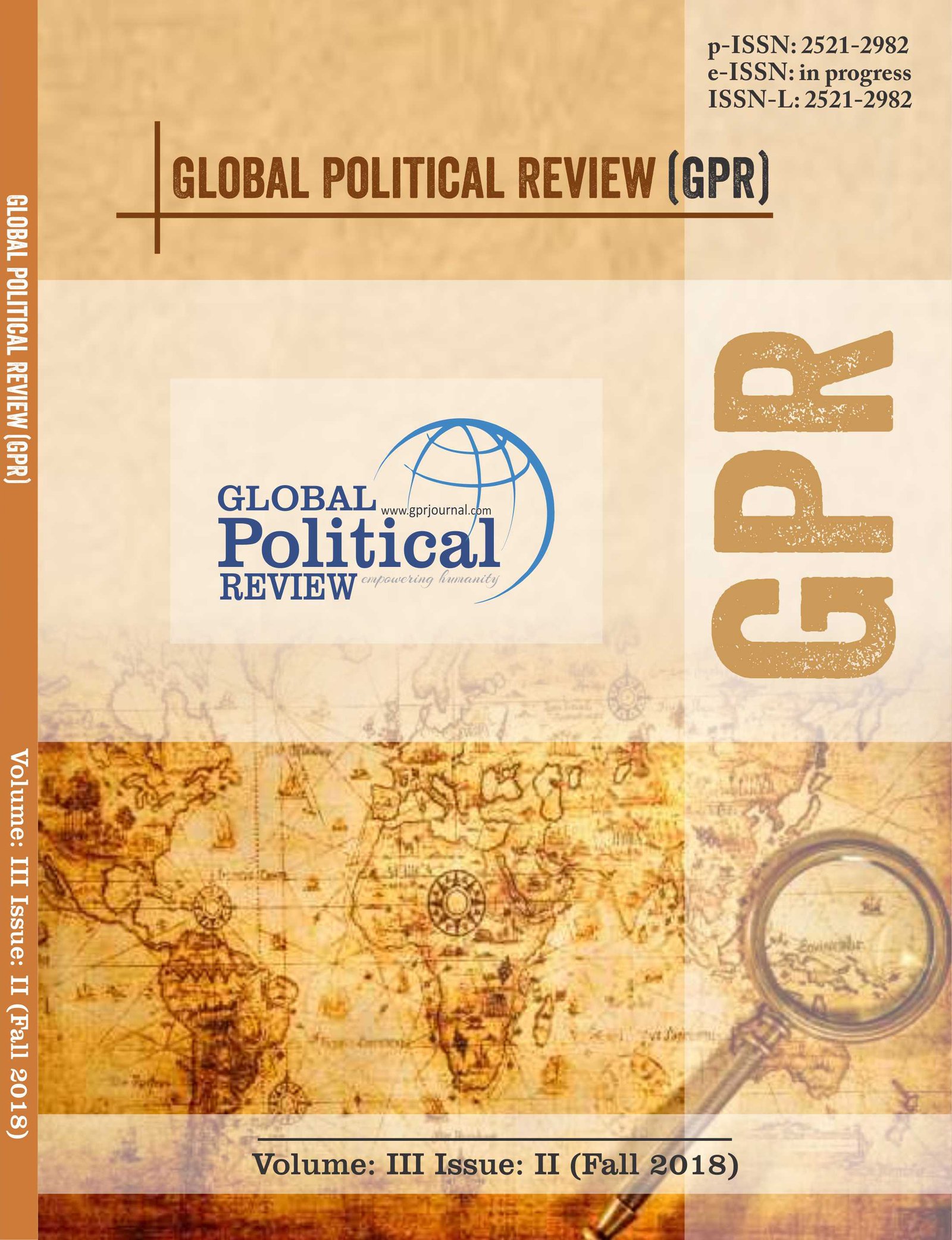 Volume III, Issue II (Fall 2018)
Volume III, Issue II (Fall 2018) 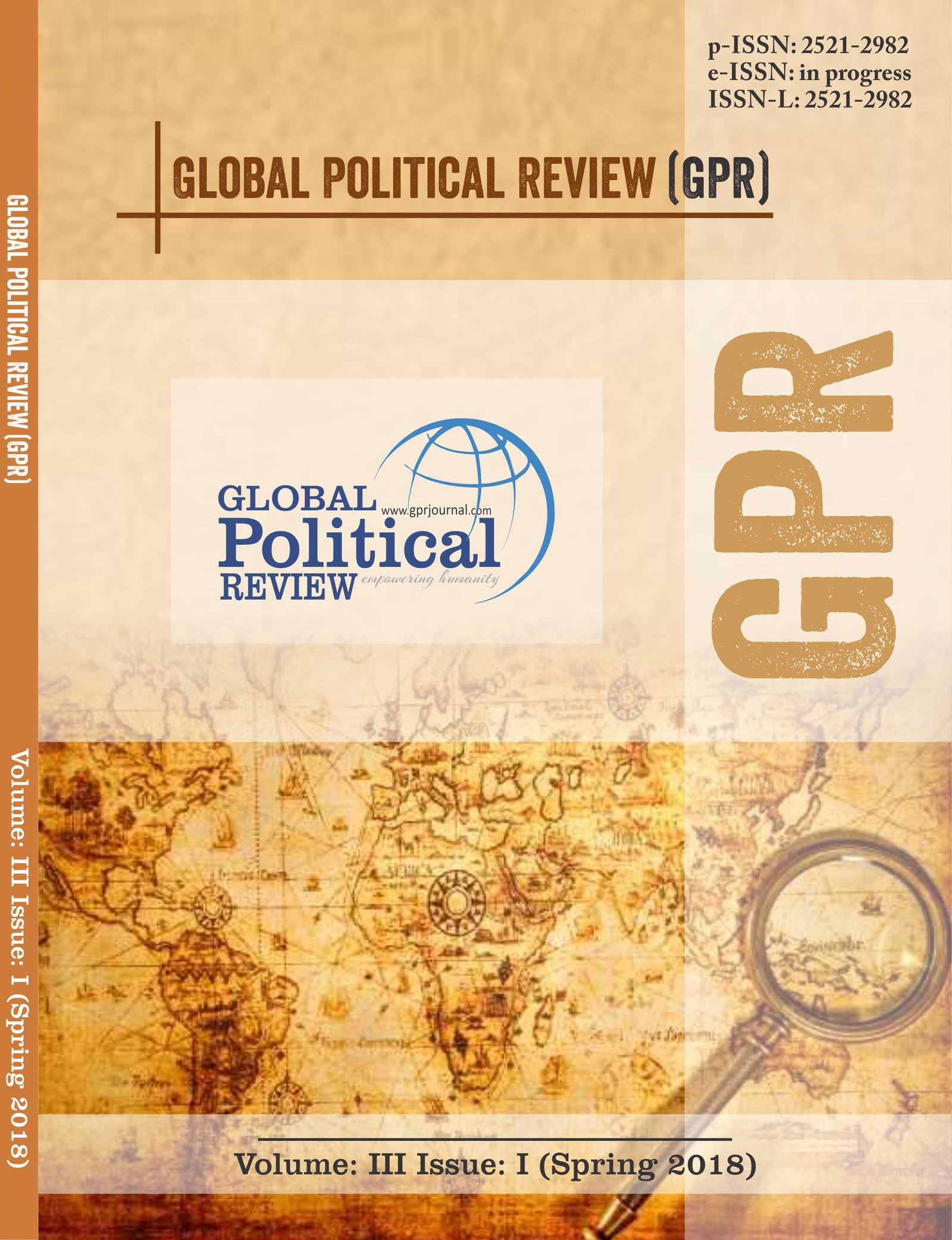 Volume III, Issue I (Spring 2018)
Volume III, Issue I (Spring 2018)  Volume II, Issue I (Fall 2017)
Volume II, Issue I (Fall 2017)  Volume I, Issue I (Fall 2016)
Volume I, Issue I (Fall 2016)